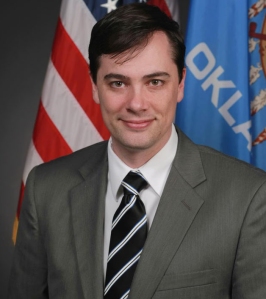
I suspect this legislative session might have been the most successful in recent years in terms of transparency. Three key transparency bills will be going into law.
Arguably the most important of these proposals extends the application of Oklahoma’s transparency laws to the Oklahoma Secondary Schools Activities Association (OSSAA).
For years policy has been influenced by groups that are not technically government agencies but which operate almost exclusively on money collected by government agencies. These groups make decisions that impact how government agencies provide service to the public and are governed by boards whose membership includes representatives of government agencies.
However, despite the enormity of some of their decisions, the Open Meeting Act and the Open Records Act do not apply to these groups.
I recently participated in a legislative study where we heard testimony from individuals who felt they had been aggrieved by the OSSAA board. Most disturbing was their account of how their case was adjudicated by the board. They were unable find a breakdown of each OSSAA board members’ votes, thus making it impossible to hold individual members accountable.
A key component of the Oklahoma Open Meeting Act requires the vote of each board member to be publicly cast and recorded. This provision provides an important accountability mechanism to the public. Without this law, board members are not required to defend or to be accountable for their votes.
House Bill 2730 requires OSSAA to follow the Open Meeting Act and the Open Records Act. Now OSSAA should have to provide the breakdown of its board members’ votes as well as follow other transparency protocol.
HB 2730 sets the precedence by which transparency could someday apply to other similar semi-government groups. As it should.
Then there’s SB 1497. Before SB 1497, an aggrieved person could recover legal fees when denied open records from a government agency, but not when denied access to what should have been an open meeting of that agency. SB 1497 enables the recovery of legal fees in both instances, and represents one of the most important in our array of government modernization efforts for this year
The third proposal, HB 2676, will ensure public access to footage from the cameras located within Oklahoma Highway Patrol (OHP) cars. Until now, the public could view the footage taken from within city and county law enforcement vehicles, but could not access OHP footage due to an exemption. It appears as if the OHP exemption was dropped into a bill late in the 2005 legislative session and has been on the books ever since. HB 2676 reversed this exemption.
I don’t think the reversal would have been successful had it not been for the support of the Department of Public Safety. They worked with the authors of the bill to ensure its passage. Their embrace of the reform is refreshing to see, as many agencies tend to fight reforms such as this one.
These three proposals represent progress in our continuing efforts to allow public access to government activity.
Thank you for reading this article. Your interest and input are much appreciated. Please do not hesitate to email Jason.Murphey@hd31.org with your thoughts and suggestions.





Be the first to comment on "Encouraging news about government transparency"